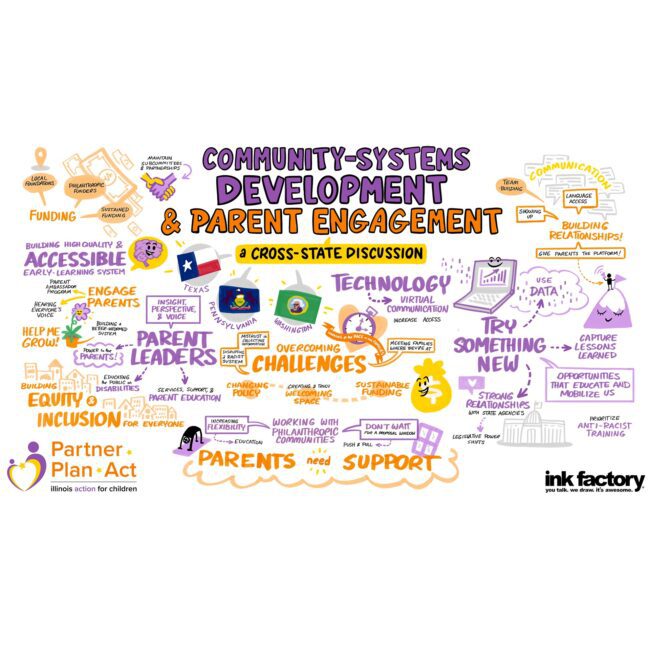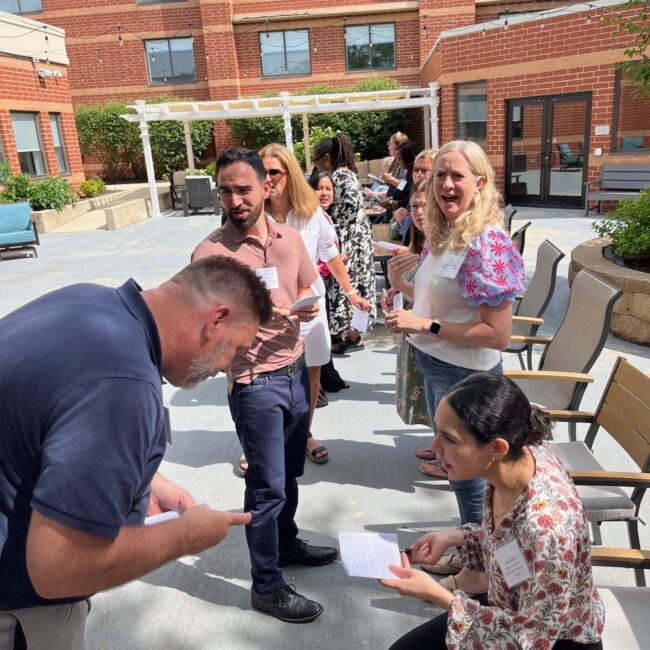Stay Connected with Your Local Officials
Invite local elected officials to community events your collaboration hosts or meet to discuss the importance of early childhood services.

Developing strong systems that support families with young children is no small feat. But the early childhood sector offers a unique opportunity to engage diverse advocates who have multifaceted expertise in childcare, early learning, family leadership, and health. Your advocacy for policies and initiatives that strengthen essential programs and services for children and families is vital in sustaining a successful early childhood system.
It’s important to advocate for the resources young children and families need, and to engage policymakers to protect and increase public investments in early childhood programs. There are many ways your local collaboration can champion young children and families.
Invite local elected officials to community events your collaboration hosts or meet to discuss the importance of early childhood services.
Participate in advocacy events at local and state levels. Your presence and voice matter.
Collaborations must be able to adapt to community change as they focus on achieving the systems change that’s necessary to thrive.
That’s where action learning comes in. It’s an outcomes-oriented improvement process of using data, identifying needs, matching solutions, taking action, and reflecting on it all. This cycle of learning and improvement is continuous, allowing for adjustments based on new insights.

Effective communication with stakeholders is crucial. It helps everyone appreciate different perspectives, reduces misunderstandings, and builds a united front for change.
Understanding how to communicate your message to different groups is vital. Various stakeholders, like faith leaders, business owners, parents, and healthcare professionals, need tailored communication. Some might be on board already, while others need more information.
Effective collaboration is more than just meetings and emails. It’s about creating a feedback loop that encourages adaptability and action. Continuous communication helps you gather insights on what’s working and what needs improvement.
When crafting your message, it’s crucial to align it with your audience’s interests. Think about:
The Community Systems Statewide Supports team organizes collaboration building into three categories of Partner, Plan, and Act. However, there is not one right way to partner, plan, and act. Community systems development work is ever-changing, and a collaboration may progress nonlinearly. A collaboration’s work is always fluid. It may jump between different areas and topics and that is okay.
Say you build a vision, develop strategies, and test your ideas to find that you missed engaging a key stakeholder. You may have to backtrack. All of this is part of a collaborations’ growth and development as the collaboration – and its community – are facing complex issues
If you and your collaboration would like more support with collaboration building—whether you are in the Partner, Plan, or Act stage—our team is here and eager to help!

